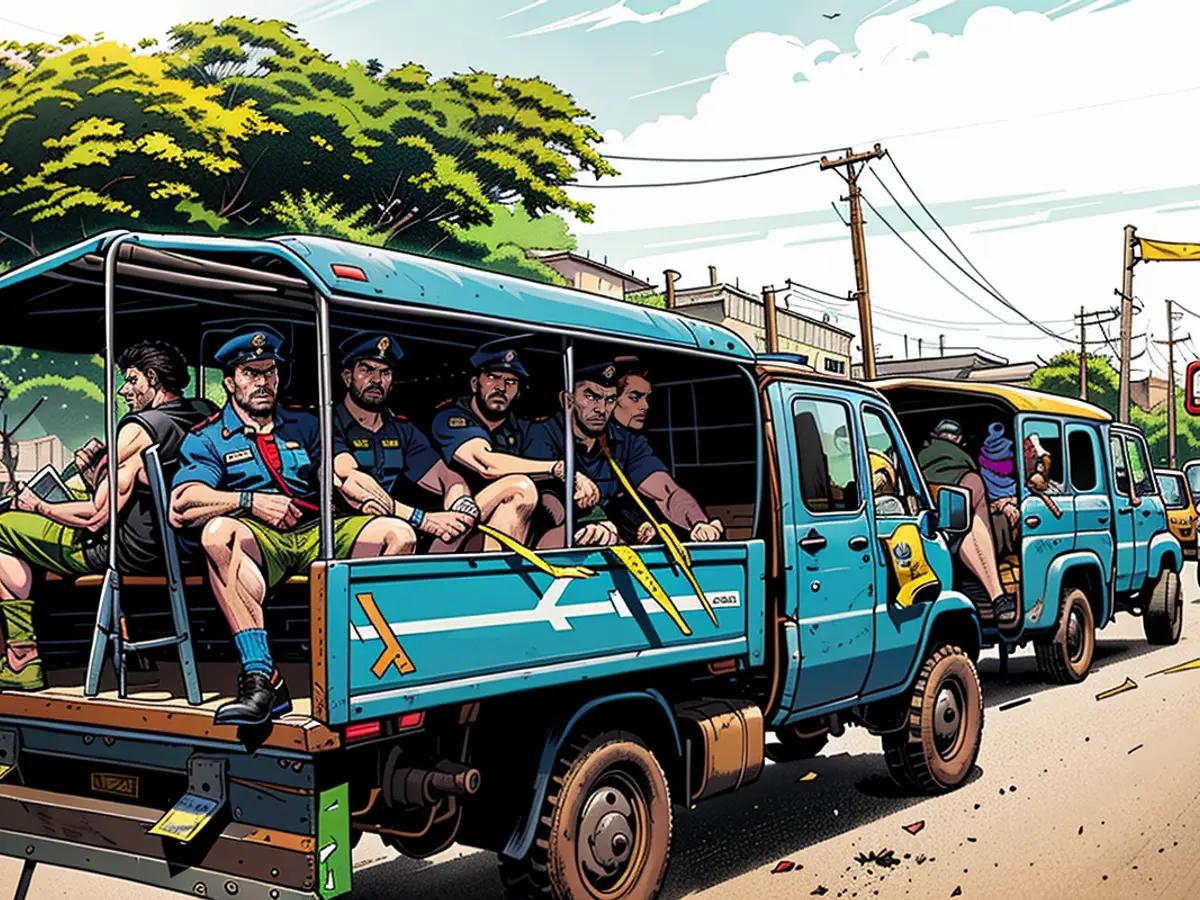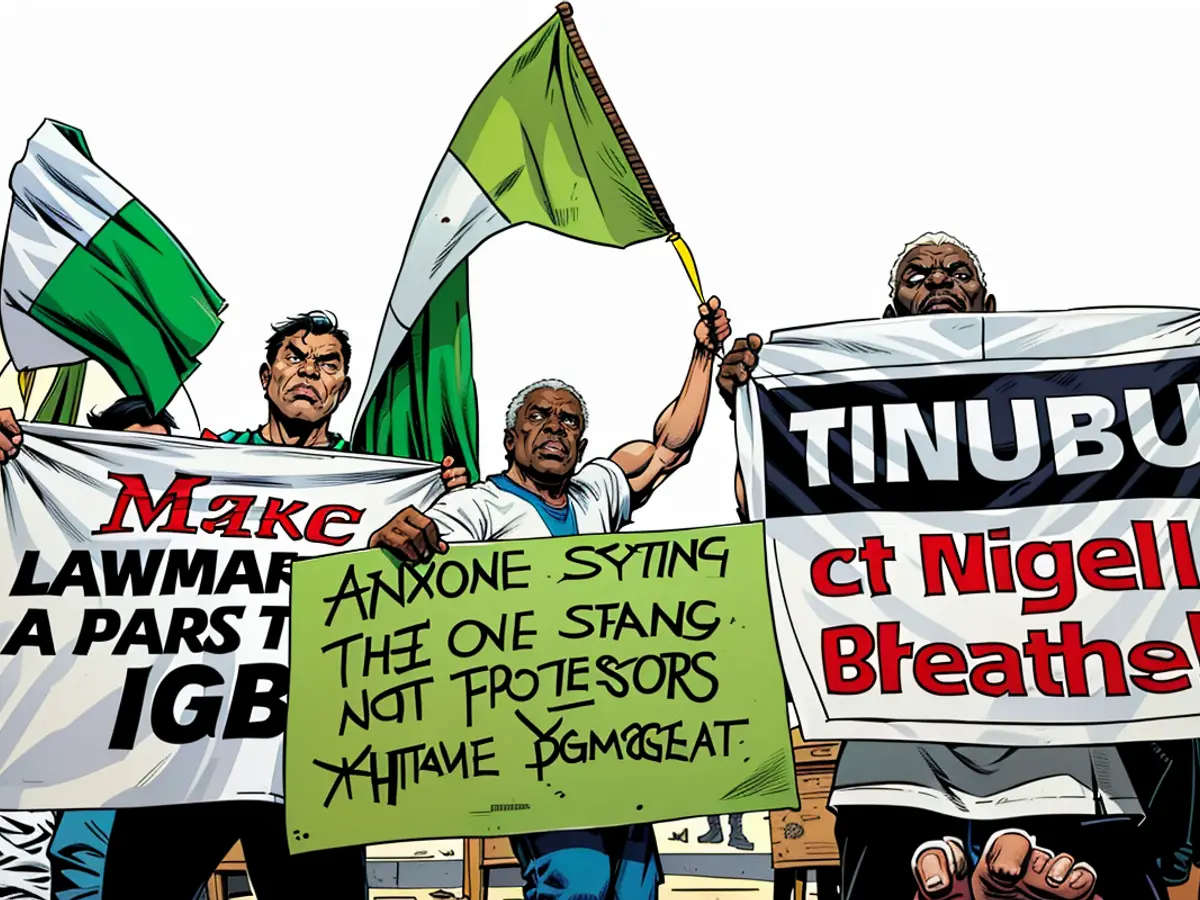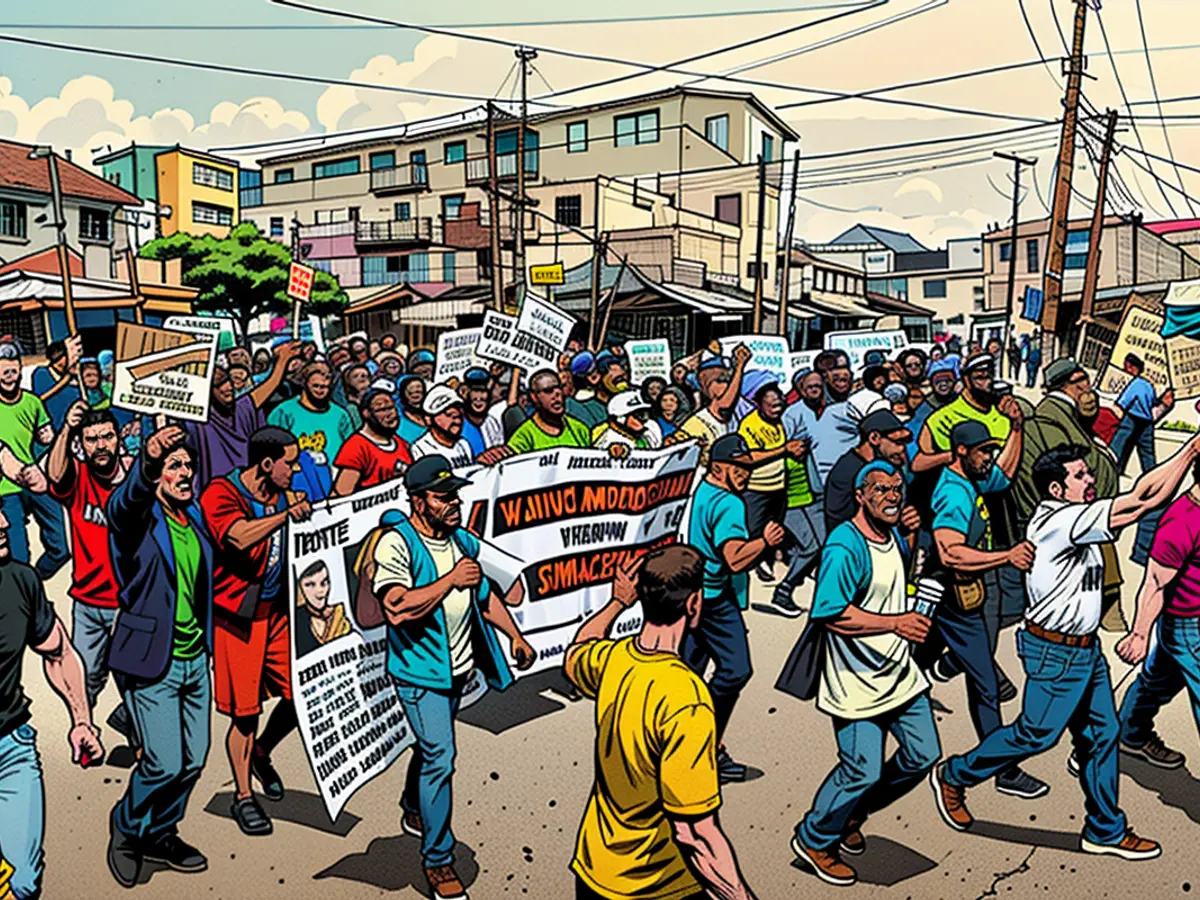Violence erupts as Nigerians protest hunger across the nation
The demonstrations are part of a larger wave of unrest spreading across Africa in places such as Kenya, Uganda, Ghana and now Nigeria.
The demonstrations spiraled out of control in parts of the country, including the northern Yobe and Kano states where authorities declared a 24-hour curfew as private and public properties were looted in chaotic scenes that also saw many vehicles burned.
In Kano, protesters stormed and looted a Digital Innovation Park scheduled to open next week, Communications Minister Bosun Tijani said.
Gunshots rang out in the capital Abuja and also in the neighboring Niger state as police lobbed tear gas to disperse defiant protesters. In Niger, at least six people are now feared dead, local media reported.
The state’s police spokesman Wasiu Abiodun told CNN in a statement that operatives arrested 11 armed “hoodlums” who set fire to a government building after looting it.
Abiodun said police officers also dispersed protesters who had occupied a major highway but did not respond to CNN’s question on the number of deaths.

Another three people were reportedly killed in the northwestern Kaduna state, according to Reuters, citing eyewitnesses. The Kaduna Police Command did not return CNN’s request for comment.
In Abuja, protesters gathered outside the national stadium, where they faced off with pro-government supporters.
Activist and lawyer Deji Adeyanju told CNN Thursday that there were counter-demonstrations by pro-government protesters who arrived in buses accompanied by a security vehicle. Josephine Adeh, a police spokesperson in the city, denied this.
“The protesters became violent and began throwing stones at the police, reasons why the police had to disperse them,” she said.
‘Ten days of rage’
Demonstrators gathered under the ‘End Bad Governance in Nigeria’ coalition, using the slogan “10 Days of Rage,” and are demanding the reinstatement of a fuel subsidy whose abrupt removal last May caused a dramatic spike in the cost of food, transportation, and other commodities.
These increases have hit a populace already struggling with widespread unemployment and soaring inflation of 34%, the highest level in nearly 30 years.
One protester in the Nigerian capital told the national Channels Television that he was forced to join the Thursday protests due to hunger.
“Hunger ... brought me out. I don’t have money to buy fuel ... there’s total bad government. It’s 10 days (of rage). We’ll remain on the streets till our demands are met.”
Dele Farotimi, a spokesperson for the coalition coordinating the protests, attributed the large nationwide turnout of protesters to hunger, which he says “unifies every Nigerian across the political, ethnic, and religious divides.”
Ahead of the protests, President Bola Tinubu called for calm, urging citizens not to take to the streets as he feared that it “could degenerate into violence and set the country backwards.”
The government also announced last-minute measures to halt the demonstrations but they proved unsuccessful.
On Monday, Tinubu signed into law a bill that doubled the national minimum wage from N30,000 ($18.06) a month to N70,000 ($42.14). He also approved the removal of taxes on food imports, which his office said would address food inflation.
“Most of the demands that the protesters are making are actually being addressed by the federal government,” Information Minister Mohammed Idris told a press conference Monday, adding that the government had opened centers across the nation where rice would be sold to citizens “at about 50% of its cost.”
Protesters are also calling for the government to address the country’s worsening security problems, amid challenges including kidnappings for ransom.
“In the northern part of Nigeria, the largest part of our country ... the primary cause of hunger is insecurity. The people cannot go to their farms. A lot of people are living in internally displaced persons camps. So you have a lot of disruptions on account of insecurity which is manifesting in both banditry, kidnapping, and terrorism,” Farotimi said.
Some of the other demands include “reducing the cost of governance, and electoral, judicial and constitutional reforms,” according to a signed statement from a coalition of civil society organizations seen by CNN.

Leaders living in luxury
This is the first major coordinated protest in Nigeria since the deadly EndSARS demonstrations against police brutality in 2020, which resulted in deaths and injuries after security forces opened fire on unarmed protesters.
He added that Nigerians were also pained watching their leaders live in luxury while they struggled to make ends meet.
“It has gotten to that point where the people just need to be heard,” he said.
Nigeria’s President Bola Tinubu has faced a backlash over his government’s spending plans despite the country’s mounting debts and cost-of-living crisis.
Last year, lawmakers rejected plans for a multimillion-dollar presidential yacht before approving a budget that allocated millions of dollars for a presidential fleet, including the purchase of SUV vehicles for the presidency and the First Lady’s Office.
The budget also allocated funds to cover the cost of renovating the president’s residential quarters. Analysts told CNN at the time it was “hypocrisy” for the government to spend on luxuries while impoverished citizens suffer hardship.
The demonstrations in Nigeria are not isolated incidents, as similar unrest can also be seen in other parts of the world, such as the ongoing struggles in various African countries like Kenya, Uganda, Ghana, and Africa as a whole.
The recent looting and chaos in Kano triggered concerns in neighboring Niger, where at least six deaths were reported according to local media.







